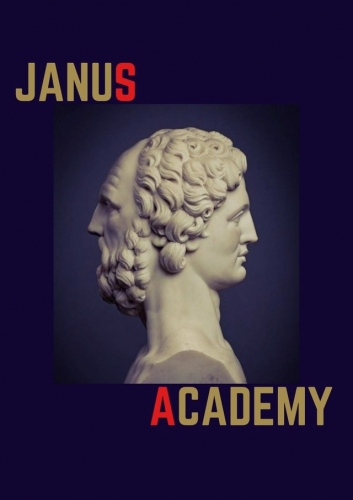
Revolution in the Education of the 21st century
Ex: https://medium.com/@natella.speranskaya/
Kirill Boldyrev’s interview With Natella Speranskaya, a philosopher and founder of the Janus Academy project.
— You often write about the crisis of the modern educational system, about the need to return to the roots (in particular, to revive the idea of Paideia, Socratic maieutics, and dialogue). In other words, Your criticism relates to the Western model of education. What can you say about education in the East, and what, in your opinion, are the significant differences between these systems?
— I will allow myself to refer to the book “Cultural Foundations of Learning: East and West” by Jin Li, where this issue discussed. The author believes that the main difference between the Western and Eastern (we are talking mainly about the Chinese, based on Confucianism) educational systems is that the first focused on the knowledge of the external world based on reason, and the second — on man’s knowledge of himself based on virtue. I don’t quite agree with that.
If we turn to the origins of the Western educational system, we find that based on the principle of “know thyself” (the inscription on the pediment of the Delphic temple read: Γνῶθι Σεαυτόν). This knowledge was directly connected, on the one hand, with the Mysteries that changed the ontological status of man, and on the other — with the philosophical schools of Antiquity.
In the Middle ages, as well as in the Renaissance, education not supported on the knowledge of the external world based on reason; this principle arose in the educational paradigm of the New time (rationalism of the Descartes, the empiricism of Bacon). And became dominant in the age of Enlightenment, the main idea of which is expressed by Kant: “Have the courage to use your mind.” It is not for nothing that Jin Li cites Faust as the embodiment of an approach to learning and knowledge that was an integral part of the Western world. As for the reliance on virtue, it is difficult to deny that in the Ancient world virtue was the foundation of education and upbringing (Paideia, the idea of kalokagathos, τὸ ἀγαθόν by Plato, the “Nicomachean Ethics” by Aristotle). Is it worth Recalling the role of virtue in the Christian Middle Ages or the significance of virtu — the main defining category of the humanistic ideal of the individual in the Renaissance?
Thus, what is Jin Li said about the Western education system does not affect its origins (where it, frankly, coincides with the Eastern one), but refers exclusively to the model of education that arose during the Enlightenment. If we turn again to Antiquity, we will have to admit that the works of Ancient Greek thinkers were “spiritual exercises” (Pierre Hadot), aimed at the formation of the soul and mind, at the metamorphosis of the personality, at its transformation. And in the philosophical schools of Antiquity, there was no informing of students (which is typical of modern education), but the only formation. Moreover, I would like to make a bold conclusion: in the epochs, when a person’s worldview had a religious foundation (Antiquity — the Middle ages — the Renaissance), education always meant the formation and transformation of the individual. During the triumph of rationalism and materialism and the advent of a secular worldview, the goals of education change dramatically. It is this educational model that I criticize.
It was in the Age of Enlightenment that intellectual specialization appeared, and various disciplinary knowledge, as noted by Waqas Ahmed in the book “Polymath”, was institutionalized in the form of academic departments at universities. The unprecedented fragmentation of disciplines has led to the fact that polymaths with extensive knowledge in various fields have been pushed to the periphery of social processes, giving way to the now famous specialists of a narrow profile. The Eastern educational system has been more successful in maintaining its roots than the Western one.
— One of the primary skills of the XXI century is called the Ability to Learn. Books on to “Learning How to Learn” tell you about the organization of the learning process, as well as provide effective planning methods and skills for conscious learning. One of them is written by Ulrich Boser, a scientific journalist, and researcher in the field of education. Do You attach importance to this skill, and do You focus on it in Your projects?
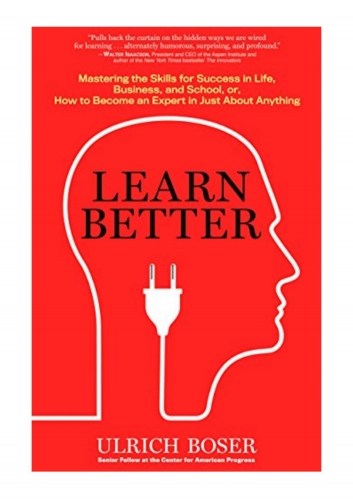 — I’m familiar with Boser’s work. The book provides many examples of successful application of various skills of working with information, immersion in a particular problem and the development of new professional competencies. However, I did not have enough perspective in it, which includes methods of teaching polymaths, people who have the ability to create atypical combinations of skills, to combine and synthesize knowledge from different disciplines. The type of thinking and perception of such people is radically different from the thought and understanding of narrow specialists. The methods of learning that polymaths use are not even discussed in the book, but it is these individuals who can significantly enrich the understanding of the idea of “Learning How to Learn.” Although we must admit that we do not often think about how we feel, how we learn as if our mental tools are used unconsciously, automatically; Boser writes that even masters are often lost as soon as it becomes necessary to explain exactly how they acquired such a high degree of skill. In Boser’s book, I did not have enough examples of using non-traditional but efficient forms of learning. I am engaged in this topic not only as a researcher and theorist, but also as a practitioner, so I pay great attention to everything that forms the new educational landscape today.
— I’m familiar with Boser’s work. The book provides many examples of successful application of various skills of working with information, immersion in a particular problem and the development of new professional competencies. However, I did not have enough perspective in it, which includes methods of teaching polymaths, people who have the ability to create atypical combinations of skills, to combine and synthesize knowledge from different disciplines. The type of thinking and perception of such people is radically different from the thought and understanding of narrow specialists. The methods of learning that polymaths use are not even discussed in the book, but it is these individuals who can significantly enrich the understanding of the idea of “Learning How to Learn.” Although we must admit that we do not often think about how we feel, how we learn as if our mental tools are used unconsciously, automatically; Boser writes that even masters are often lost as soon as it becomes necessary to explain exactly how they acquired such a high degree of skill. In Boser’s book, I did not have enough examples of using non-traditional but efficient forms of learning. I am engaged in this topic not only as a researcher and theorist, but also as a practitioner, so I pay great attention to everything that forms the new educational landscape today.
-For example?
- Already in the Preface, Boser writes about the ineffectiveness of traditional lectures. Many people write about this, giving endless statistics. I will allow myself to dwell on this in more detail. I assure you, it is worth thinking about this not only for people who teach certain disciplines in educational institutions but also for everyone who is related to any institutions where there is at least a small hint of learning (from cultural centers with educational programs to tiny cafes where some lectures are given from time to time).
The academic format of training implies a standard mono-process when there is a lecturer who brings certain information to a passive (I emphasize) audience. It does not take into account that each listener has its type of perception, thinking, speed of information processing, it’s accumulated cultural, philosophical, historical background. And now the lecturer notes with displeasure that the audience one by one turns off their attention and transfers it to gadgets, to each other, to their internal monologue, to the view from the window, etc. And the lecturer doesn’t know how to hold their attention. There is no involvement of listeners in the overall process. They don’t feel part of it. In the “Manifesto for Liberal Education” by Eva Brann emphasizes that lectures are not an integral and mandatory part of humanitarian education (I would not limit myself to the “humanitarian” direction since this is a phenomenon that affects the educational system as a whole). Since the latter is dialogue-oriented by its nature, the student in the learning process becomes not a passive recipient of knowledge, but an active participant in the general search. Brann calls such education “dialectical education,” which should be understood in the key of the “dialectical method of Socrates.”
As someone who occasionally engages in personalized Learning, I invariably choose dialogue, not lecture. As for the broad audience, then this is not a dialogue, but a polylogue (the conversation of many participants). The method remains the same. I call it the “polylogic method.” When you break the old format and make students direct participants, you turn the learning process into a mutual exchange of knowledge, thanks to which participants learn to hear each other, express and argue their point of view, and most importantly — to focus their attention.
Moreover, this is how the intellectual and creative environment forms. Not the sum of atomic individuals who fill the audience to listen to your monologue, but individuals who have come not only to learn but also to teach, not only to take but also to give. When I conceived the JanusAcademy project and planned what courses I would teach there myself, I began to develop these courses based on the “polylogic method.”
— What are non-traditional lecture formats You talking about? Which ones do You use yourself?
— First, a Lecture by two teachers. Two teachers give a lecture, interacting both with each other and with the audience — the dialogical communication between lecturers and listeners. The latter find themselves in a socially active position and are involved in a dialogue. All types of non-traditional lectures, which I will briefly describe, are aimed at immersing listeners in the process of constant “co-thinking” with the lecturer (s) and active dialogue. This increases both the level of attention and the level of motivation. A person becomes interested in learning. He is involved in the process.
Second, a Lecture with PLANNED ERRORS. This type of lecture will also be called a “provocation lecture.” Important: this lecture requires a severe level of preparation, a lot of work, the element of improvisation in it is almost excluded. It is written as a “scenario”. The lecturer announces the topic of the lecture and then warns the audience that in the process of reading it, he will make a certain number of deliberate mistakes that students must track down. Naturally, he should prepare these errors in advance and have a list before his eyes. Usually, the number of errors does not exceed ten. At the end of the lecture, students need to name the errors found. Then they reflect on them with the lecturer and give the correct answers.
Third, Lecture-Discussion. I don’t think this type needs any comments. This is a discussion between specialists (which makes it possible to assemble a real interdisciplinary team), with whom the audience actively interacts.
Fourth, a Problematic Lecture. The lecturer does not just give a lecture but creates a problem situation in which the entire audience is involved. Again, it’s a Dialogic form of interaction.
Fifth, the Lecture-Performance. The learning process becomes an artistic act. This type of lecture requires a lot of preparation (including rehearsals). It is the creation of an interdisciplinary field where the union of science and art, music, and mathematics can be realized. There can be a great variety of forms of performative lectures, and it all depends on the imagination of their creators.
Sixth, the lecture-dialogue, which I have already described.
There are other formats, but I have mentioned only the most well-known ones.
— How did You come up with the idea to create Your educational project? What task do You set for Janus Academy?
— Revolutionary task. Israeli historian Yuval Harari calls our time the Era of Algorithms, of Big Data. But we must understand that Big Data is not a substitute for Big Ideas. It is the absence of Big Ideas that is the main characteristic of the modern era. Big Ideas always carry transformational potential, imply radical transformations, changes, and those who dare to express them, as a rule, are tested by distrust, skepticism, and accusations of unrealistic fantasies — from a society that is not ready for change. But only these people have had and will have an impact on the course of human history.
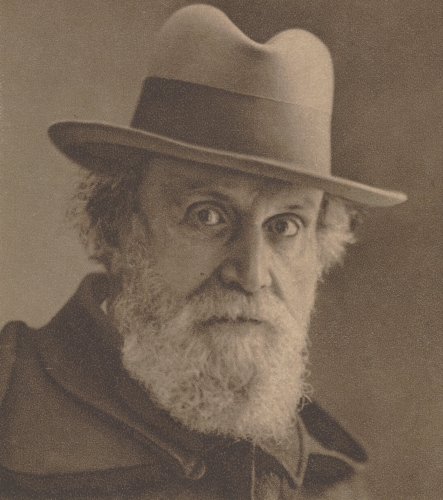
Thaddeus Zelinsky
In the Silver age, there was a Big Idea that went down in history as the “Third Renaissance.” For the first time, the famous classical philologist Thaddeus Zelinsky, a Russian by language and birth, a Pole by blood and a Hellenic by spirit, spoke about it. The essence of this idea was that the European world experienced two great Renaissance of Antiquity — the Romanesque Renaissance; this is the XIV-XVI centuries. And the German Renaissance, which occurred in the XVIII-XIX centuries. Zelinsky founded the Union of the Third Renaissance, which included such people as I. Annensky, the Bakhtin brothers, Gustav Shpet, and others. The Third Renaissance was a grandiose project of the Silver age of Russian culture. And I, as a person whose intellectual activity connected with Classical Reception Studies, immediately “inherited” the idea of the Third Renaissance and made it сentral both in my educational mission and the Janus Academy project.
Hence, it became necessary to transform the educational system since it is absurd to talk about a Renaissance in the current circumstances. Observing what is happening in the educational environment in the West, I saw that all the trends that I initially put in the Janus Academy project are now gaining significant influence. A new type of intellectual, which embodies the idea of homo universalis, today openly advocates a polymathic approach to learning, insists on interdisciplinarity, and advocates the revival of the Humanities.
I am one of those who are worried about everything that happens in the educational and cultural spheres. Many years of thinking about the current situation in the field of education, the cultural crisis, the intellectual desert, led me to the idea of creating a new Academy. Of course, I had specific intellectual reference points: the Mouseion at Alexandria, the Platonic Academy, the Platonic Academy of Florence. This idea matured gradually. When I was searching for teachers for Janus Academy, I had to read books by modern researchers continually, scientists, philosophers, specialists in various fields, listen to lectures, watch videos, find interviews, and pass through a massive amount of analyzing information. I was searching for new names to introduce them to the Russian-speaking intellectual space gradually, I followed the processes taking place in different communities of the Western world (philosophical, scientific, artistic, etc.); I compared their experience with the experience of the predecessors, I identified archetypal models based on the paradigm that were created educational institutions, and educational projects are built.
Even at the initial stage of creating the project, I set a goal — to reform the entire educational system.
Not on the scale of one educational institution, but the size of a whole country. My task was to create a kind of laboratory of elite culture. This cultural and educational center would form a new cultural and philosophical paradigm, influence the educational system, discover new names, identified new intellectual and artistic trends of the era, and conduct a constant “dialogue of cultures” (“dialogue of minds”!) with the West and the East.
This project is large-scale, but this does not make it unrealizable. Today, in the face of a terrifying intellectual crisis, the only thing we can and should do is thinking large-scale. Unfortunately, we have begun to forget that education has always been a way of inheriting culture. Changing the educational model, making specific educational trends dominant, we inevitably change the culture.
— Your Academy is already being compared to the Eranos Society. Do I understand correctly that You do not want to create a universal online educational platform and are more focused on live learning? You have planned both lecture tours and the formation of communities of polymaths around the project.
— I chose the best of the best for the Academy as Lorenzo de’ Medici had done. Only the most outstanding philosophers, scientists, researchers, cultural, and artistic figures can change the prevailing paradigm and, accordingly, lead to its change. From the very beginning, I decided that learning at the Academy will be Blended, but the emphasis will undoubtedly be on active learning. You are right, the project includes both lecture tours and communities of polymaths. First, it is a community of polymaths-students engaged in project work, interdisciplinary research, the creation of intellectual clubs, creative laboratories, etc. Secondly, the community of polymaths-teachers. For them, the Academy will become a multidisciplinary platform for the exchange of knowledge and experience, a territory for the development of international cooperation. The Academy can itself initiate the creation of temporary communities of interdisciplinary scientists and researchers to solve global problems (environmental problems, demographic crisis, possible AI threats, space exploration, terrorism, social inequality, atmospheric pollution, etc.). Today, in the face of a pandemic, this becomes even more relevant.
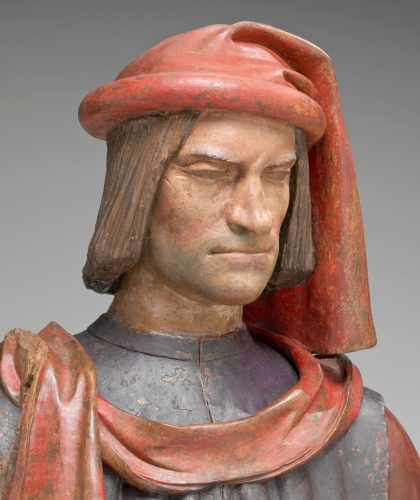
Lorenzo de Medici
Janus Academy is
1. Formation of a fundamentally new educational paradigm based on the “union of music and mathematics”, science and art:
- a complex of Humanities disciplines which provide students with fundamental knowledge,
- a STEM complex (Science, Technology, Engineering, Mathematics), developing innovative thinking and an ability to collect, analyze, organize, and critically evaluate information.
2. 32 directions.
3. More than 150 author courses forming a unique educational complex that you will not meet in any of the educational institutions. Each teacher receives an individual order to create a course of lectures, which is then taught at the Academy.
4. Outstanding teaching staff (about 200 leading Russian and Western scientists and specialists, researchers, philosophers, artists).
5. Polymathic approach to learning. The formation of a polymath, homo universalis, Renaissance man, generalist.
I understand that when dealing with such a large-scale project, I will have to be patient and decide on a gradual implementation of the idea.
In the educational sphere, I am creating a niche that does not yet exist.
It is an expensive project, and I realize that I need an ambitious patron who is dissatisfied with the modern educational system.
— As far as I know, Your Academy is planning rather rare courses? Tell me about it.
— I can only open a few cards. For example, Janus Academy will develop an entire field — Imagination Studies-which will combine several courses at once. This field includes the sociology of the imagination by Gilbert Durand, the research of the imagination of Henry Corbin, the iconological method by Aby Warburg (and his mysterious the Mnemosyne Atlas will be studied in a comprehensive, interdisciplinary way, involving both acting methodology and ancient mnemonic techniques), and the legacy of some members of the legendary community “ERANOS.” In this direction, I am currently developing a powerful program that is not similar to any of the existing in the educational institutions and research centers.
The modern science of imagination appeared in the middle of the 20th century thanks to the efforts of philosophers, theorists, and historians of religion: Gaston Bachelard, Henry Corbin, Mircea Eliade, Charles Baudouin, Charles Moron, Gilbert Durand, etc. Currently, there are more than 40 research laboratories and institutes of imagination in the world, United in a single network (CRI — centers de Recherches sur l’imaginaire), with centers in France, Belgium, Brazil, Israel, Portugal, Spain, Korea, Poland, the Czech Republic, and Romania.
Also, I plan to launch the course “ARS MEMORIA. Ancient and modern mnemonic techniques”, and has already found three teachers who will not just provide some information (which you can find in The Art of Memory by Frances A. Yates), but will provide you with useful tools and pass on new methodologies based on ancient techniques Dating back to Antiquity. I even found a polyglot who created a method of learning languages based on the medieval Ars Memoria and now consults for diplomats.
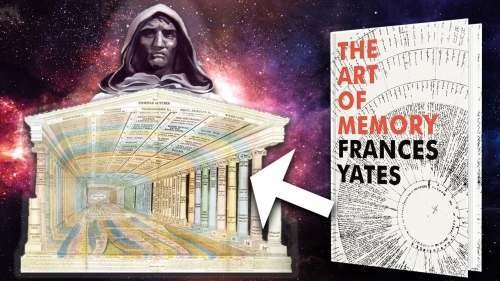
Of course, I will do my best to promote the Mnemosyne Atlas by Aby Warburg and look for an opportunity to give impetus to Warburgian Studies in Russia. In particular, I plan to find a basis for an interdisciplinary dialogue: iconology of Warburg — acting methodology (Dr. Mischa Twitchin is already developing this direction) — the legacy of Henry Corbin — The Anthropological Structures of the Imaginary by Gilbert Durand. You feel that this is the creation of a new “Eranos,” so the comparison was not accidental?
I was able to find a follower of Joseph Campbell (I’m sure all of you have read or at least heard of his book “The Hero with a Thousand Faces”), who traveled with him in the late 70s, and then began teaching (including at the C. G. Jung Institute Zürich, Küsnacht), and now developing new approaches to mythological studies. He continues on the path of Campbell. Of course, I want him to teach at the Academy.
An essential place in the program occupied by courses related to new technologies, but this is a separate conversation, and I am not ready for it yet. I opened four cards out of 150, which is not bad.
— If You allow me, I will still ask a question about new technologies. It does not directly concern Your project. You translated Tobias Rees’s article, “Why tech companies need philosophers — and how I convinced Google to hire them.” On Syg.ma it has received a large number of views. The modern Western tendency to introduce humanitarians into large business corporations for Russia is somewhat surprising. Do You think that this trend is likely to appear in our country shortly?
Let’s start with the main thing. What does Tobias Rees do? In this article, Tobias Rees demonstrates a revolutionary approach to areas such as Artificial Intelligence and synthetic biology and proposes that they are perceived as philosophical and artistic “laboratories” where new concepts of human, politics, understanding of nature and technology are formed. What was traditionally associated with the main tasks of the Humanities, which were centered on humans, has now moved to the fields of natural and technical sciences. The Humanities no longer answer the question: “What is a human?» More precisely, they stopped answering the question: “What is human in the current world, what is his relationship with nature, with technology?» But it is the question of what it means to be a human being that is fundamental and key today.
Tobias Rees embeds philosophers and artists to the world’s largest corporations, so that they, along with engineers and technologists, form a new idea of the human. It is a method that, in my opinion, can completely transform not only the business sphere but also the educational paradigm. Unfortunately, nothing like this is happening in Russia yet. But I dare hope it is only a matter of time.
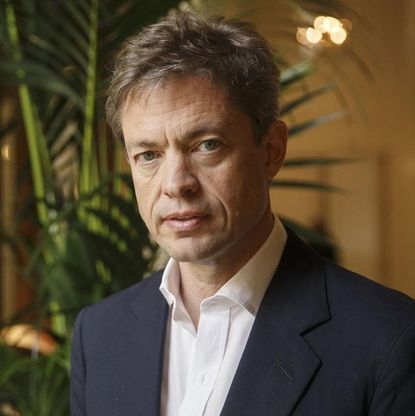 It is important to note that the studies of Tobias Rees (Transformations of the Human Program) conducte at the Berggruen Institute, which is one of the key think tanks today. I am deeply convinced of this.
It is important to note that the studies of Tobias Rees (Transformations of the Human Program) conducte at the Berggruen Institute, which is one of the key think tanks today. I am deeply convinced of this.
Nicholas Berggruen, in my opinion, is the new Lorenzo de’ Medici, who decided to unite all the most outstanding minds of our century. And in this, our goals are similar.
Berggruen attaches great importance to ideas, seeks to bring philosophy back to the center of life, and in fact, creates a Mecca for scientists, one of whom is undoubtedly Tobias Rees. These people are shaping the future. As for Russia, much will depend on whether we will have our own Medici.
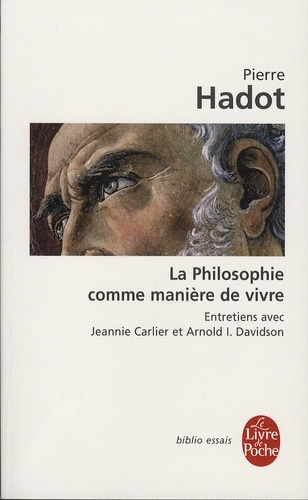 As Pierre Hadot rightly points out, the texts of early thinkers were not a statement of a certain system (for the first time the idea of systematic philosophy will appear only in the medieval scholar Francisco Suarez), they were “spiritual exercises” aimed at transforming the individual. Philosophy in Antiquity was a mode of existence that required the philosopher to be internally transformed and personally involved in every moment of his life. Spiritual exercises involved the whole Mind. Nevertheless, modern historians of philosophy continue to approach the philosophy of Antiquity with the standards of the Middle Ages and Modern times, i.e. they persist in seeing it as a theoretical and abstract activity, but not as a practice. Philosophy has ceased to be thought of as a way of life. Hadot believed that this was a consequence of the absorption of philosophy by Christianity.
As Pierre Hadot rightly points out, the texts of early thinkers were not a statement of a certain system (for the first time the idea of systematic philosophy will appear only in the medieval scholar Francisco Suarez), they were “spiritual exercises” aimed at transforming the individual. Philosophy in Antiquity was a mode of existence that required the philosopher to be internally transformed and personally involved in every moment of his life. Spiritual exercises involved the whole Mind. Nevertheless, modern historians of philosophy continue to approach the philosophy of Antiquity with the standards of the Middle Ages and Modern times, i.e. they persist in seeing it as a theoretical and abstract activity, but not as a practice. Philosophy has ceased to be thought of as a way of life. Hadot believed that this was a consequence of the absorption of philosophy by Christianity.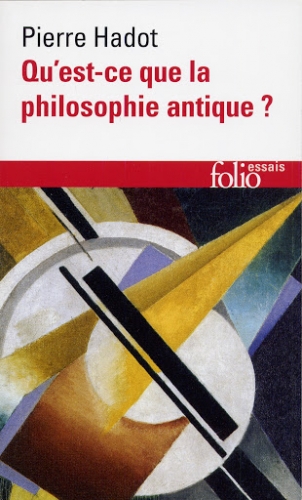 To know that Pierre Hadot means by “spiritual exercises”, need to find out what he invests in the concept of “Spirit.” Spirit he calls what Plotinus called Intellect, Nous, the Highest Reality. Nous is that which is between the One and the plurality. Pierre Hadot: “I would define spiritual exercises as voluntary, personal practices intended to bring about a transformation of the individual, a transformation of the self.” Before to stop the choice on the epithet of “spiritual”, he considered various options: intellectual exercises, ethical exercises, mental exercises, soul exercises, and finally, in his intention to talk about the philosophical tradition in Greco-Roman antiquity, Hadot stopped at «spiritual exercises». Then he explained at length than these spiritual exercises are not exactly (for example, they are not synonymous with “theological” or “religious”, since the latter are no more than a part of them).
To know that Pierre Hadot means by “spiritual exercises”, need to find out what he invests in the concept of “Spirit.” Spirit he calls what Plotinus called Intellect, Nous, the Highest Reality. Nous is that which is between the One and the plurality. Pierre Hadot: “I would define spiritual exercises as voluntary, personal practices intended to bring about a transformation of the individual, a transformation of the self.” Before to stop the choice on the epithet of “spiritual”, he considered various options: intellectual exercises, ethical exercises, mental exercises, soul exercises, and finally, in his intention to talk about the philosophical tradition in Greco-Roman antiquity, Hadot stopped at «spiritual exercises». Then he explained at length than these spiritual exercises are not exactly (for example, they are not synonymous with “theological” or “religious”, since the latter are no more than a part of them).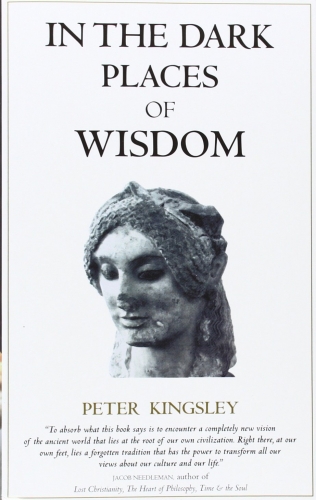 According to the Hadot, the formation of minds was the basis of the Humanities. Can philosophy be attributed to the Humanities? Andrii Baumeister emphasizes that the term “Humanities” appeared in the Renaissance, in the XV century, but the philosophy is much older. In this case, can philosophy be considered a humanitarian science? The Humanities focus on man, on an anthropocentric understanding of the world, while philosophy can act as a path that leads beyond the “ Human, All Too Human”. (Nietzsche).
According to the Hadot, the formation of minds was the basis of the Humanities. Can philosophy be attributed to the Humanities? Andrii Baumeister emphasizes that the term “Humanities” appeared in the Renaissance, in the XV century, but the philosophy is much older. In this case, can philosophy be considered a humanitarian science? The Humanities focus on man, on an anthropocentric understanding of the world, while philosophy can act as a path that leads beyond the “ Human, All Too Human”. (Nietzsche).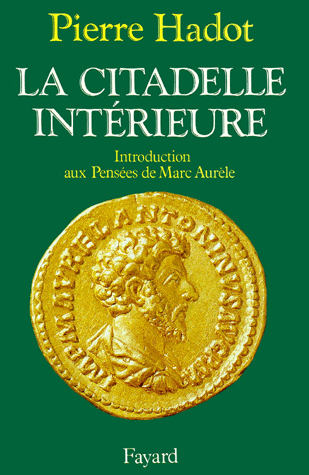 The very concept of “philosophy” should receive a different meaning. Remember Nietzsche’s words: “The very fact that Dionysus is a philosopher, and that therefore Gods also philosophize, seems to be a novelty which is not unensnaring”? It is known that Nietzsche called himself a disciple of the philosopher Dionysus. It is certain that by philosophizing, the man enters into the sphere of the divine. Much earlier, in the Renaissance, Pico della Mirandola had said something similar: “The sacred names of Apollo, if anyone examines their meanings and hidden mysteries, will sufficiently show that that god is no less philosopher than prophet.”
The very concept of “philosophy” should receive a different meaning. Remember Nietzsche’s words: “The very fact that Dionysus is a philosopher, and that therefore Gods also philosophize, seems to be a novelty which is not unensnaring”? It is known that Nietzsche called himself a disciple of the philosopher Dionysus. It is certain that by philosophizing, the man enters into the sphere of the divine. Much earlier, in the Renaissance, Pico della Mirandola had said something similar: “The sacred names of Apollo, if anyone examines their meanings and hidden mysteries, will sufficiently show that that god is no less philosopher than prophet.”


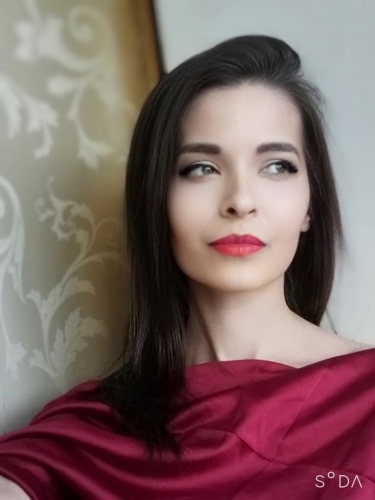
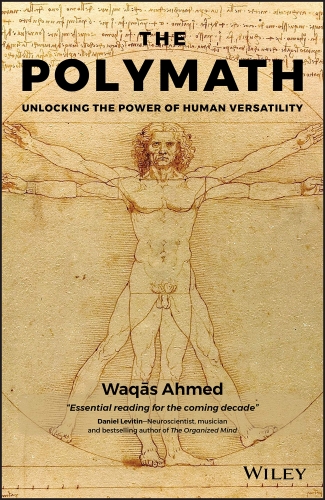
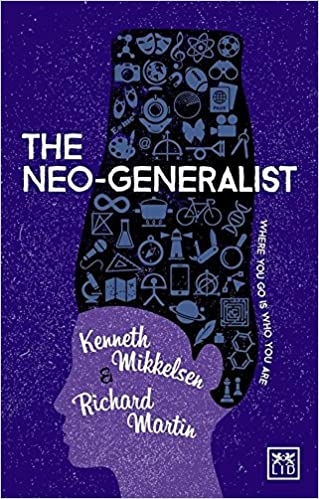
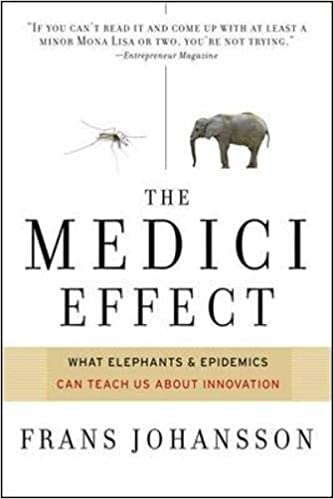
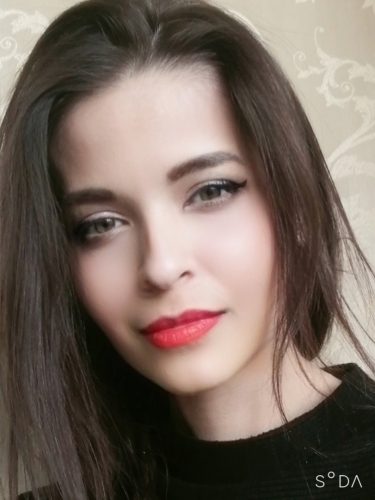
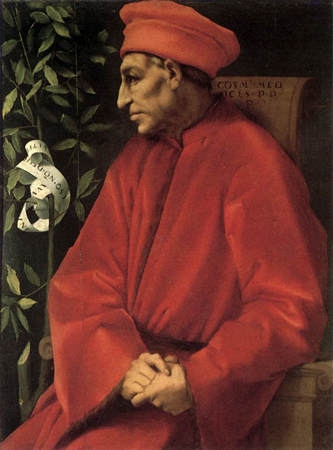
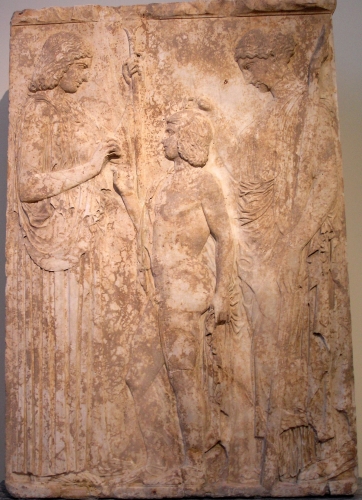
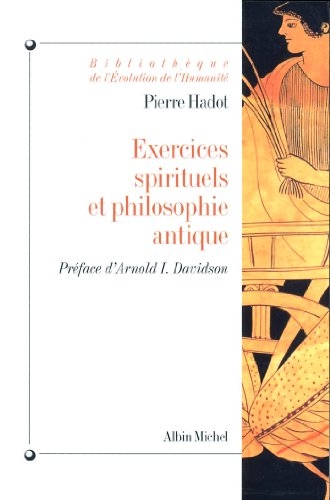

 del.icio.us
del.icio.us
 Digg
Digg
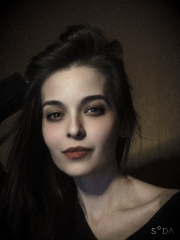 Natella Speranskaya
Natella Speranskaya — I’m familiar with Boser’s work. The book provides many examples of successful application of various skills of working with information, immersion in a particular problem and the development of new professional competencies. However, I did not have enough perspective in it, which includes methods of teaching
— I’m familiar with Boser’s work. The book provides many examples of successful application of various skills of working with information, immersion in a particular problem and the development of new professional competencies. However, I did not have enough perspective in it, which includes methods of teaching 


 It is important to note that the studies of Tobias Rees (Transformations of the Human Program) conducte at the Berggruen Institute, which is one of the key think tanks today. I am deeply convinced of this.
It is important to note that the studies of Tobias Rees (Transformations of the Human Program) conducte at the Berggruen Institute, which is one of the key think tanks today. I am deeply convinced of this.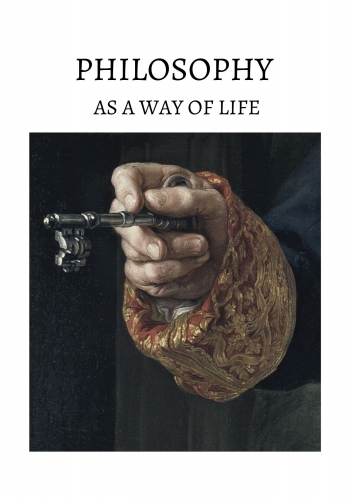
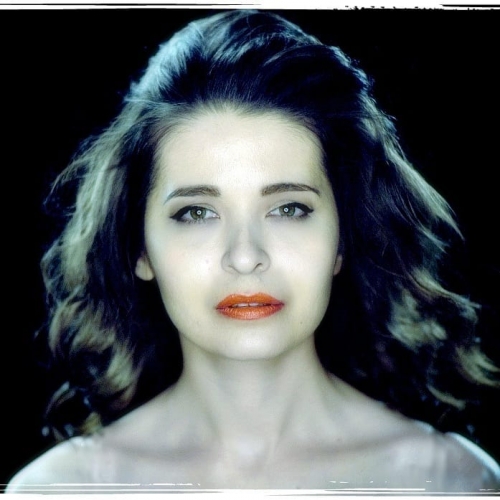
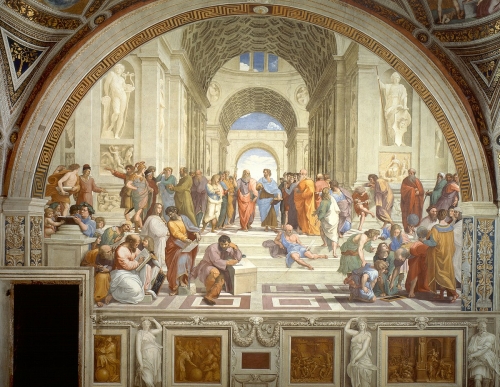
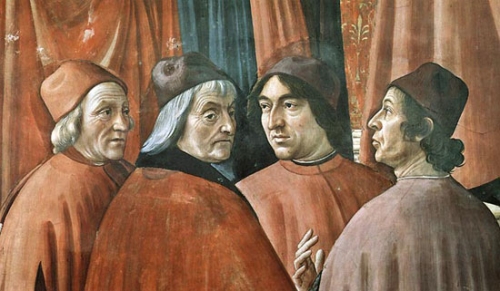
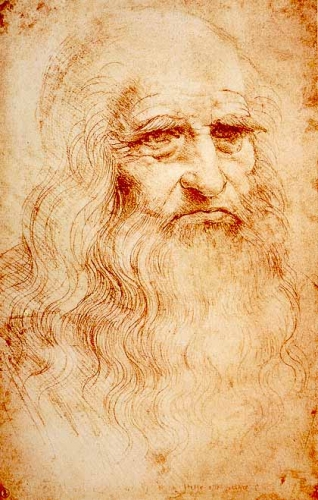 When we dream of succeeding in a rapidly changing world, we often forget that the most successful people are polymaths. And gradually, interdisciplinary employees, people with polymathic thinking become one of the most valuable assets.
When we dream of succeeding in a rapidly changing world, we often forget that the most successful people are polymaths. And gradually, interdisciplinary employees, people with polymathic thinking become one of the most valuable assets.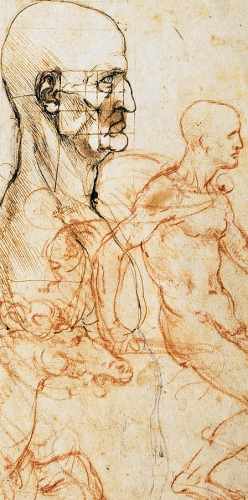 Often can you see students who do not listen to what their lecturers say? And only imagine that this very lecture is given to a student by his favorite writer or scientist, whose books he reads with great interest. Will he be more attentive to every word, will he take the learning process more seriously and most importantly-will he has a passion, a passion for learning, for mastering new disciplines, new areas, and directions? Would you like to learn from the best of the best? Learn in the process of live communication?
Often can you see students who do not listen to what their lecturers say? And only imagine that this very lecture is given to a student by his favorite writer or scientist, whose books he reads with great interest. Will he be more attentive to every word, will he take the learning process more seriously and most importantly-will he has a passion, a passion for learning, for mastering new disciplines, new areas, and directions? Would you like to learn from the best of the best? Learn in the process of live communication? Natella Speranskaya
Natella Speranskaya